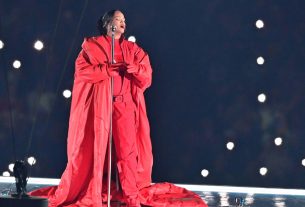|
Getting your Trinity Audio player ready...
|
Maybe you were a wee lad or lass all the way back in…2006? Is that what it says here? OK. Well maybe you were just in high school or college then, and that was the last big Serie A scandal, known as “Calciopoli,” which saw Juventus punted to Serie B and other clubs docked points and money. That was about influencing match officials, though the practice of “suitcases” showing up in refs’ hotel rooms the night before matches wasn’t exactly a closed secret for decades in the Italian game. It’s Italy, after all. And now Serie A has another one, which might not see Juve relegated but very well could leave yet another stain on the league that it will struggle to overcome.
Late last week, Juventus were docked 15 points for basically some funny bookkeeping, though they are appealing. The deduction dropped the Turin giants from the Champions League places in Serie A to 10th, 12 points behind the top four, and it is going to be a real struggle for them to make up that ground in half a season. Missing out on Champions League income could be disastrous for a club that is probably the very definition of Icarus on a football pitch, chasing European glory and now crashing deeply into the Earth. Justice may come for Napoli too, but we’ll circle back to that.
Plusvalenza
The heart of the scandal is “Plusvalenza,” or basically inflating the value of players in transfers. This from Forbes is a pretty good primer on the whole thing, but the CliffsNotes version is that because transfer fees paid out are spread over the length of that player’s contract but transfer fees received are recorded as one lump sum, you can fudge what exactly you’re profiting and how much over some transfers
This scandal revolves around two such Caponian workings, when Juve essentially swapped Miralem Pjanić out to Barcelona and got Arthur Melo in return. The latter was valued at €72 million while the former was valued at €60, and neither player was ever worth anything close to that. But given that the €72 million that Juventus never actually shelled out could be spread over Arthur’s contract on the books, and that €60 all came at once (even though Barca wouldn’t have actually sent Juve a penny), Juve could record the whole thing as a profit that year. They pulled some of the same shenanigans when swapping-but-not-swapping Danilo and Joao Cancelo with Manchester City.
There’s also been evidence that though Juve announced that players were taking a one-third pay cut during the pandemic to help the club out, the club attempted to pay them under the table to keep them happy and to also duck the tax collectors, a bigger Italian tradition than Ferrari.
G/O Media may get a commission

Up to $100 credit
Samsung Reserve
Reserve the next gen Samsung device
All you need to do is sign up with your email and boom: credit for your preorder on a new Samsung device.
Napoli is under the hot lights as well, over the transfer of Victor Osimhen and his transfer from French side Lille. Osimhen was brought in for about €70 million, but Napoli sent what they claimed was €20 million worth of four players back, though it wasn’t a swap deal. Except combined those four players, a backup keeper, and some youth players, made all of one appearance combined for Lille. So how did they add up to €20 million? Again, Napoli could spread out that €70 million expense for Osimhen over the length of his contract, but that €20 million sale of some flotsam lying around meant that for that year, Napoli could at least claim that they were in the black.
Can’t get right
It’s one thing for Juventus to be penalized again, and that’s a big enough black eye. But if Napoli, maybe the best story in European soccer right now, has to take some sort of points deduction that throws their Scudetto chase into chaos, the credibility of Serie A will take major damage once again.
While the actual soccer in Italy is a blast (if Napoli aren’t penalized they will probably be the league’s fourth champion in four seasons, something none of the other Big 5 leagues can boast), that doesn’t mean that the league isn’t a total basket case. It is miles behind the Premier League, and significantly behind the Bundesliga and La Liga when it comes to TV deals, especially international ones, and sponsorships. Serie A clubs simply can’t spend like their European counterparts, which is exactly what Juventus and possibly Napoli were trying to bridge with their devilish bookkeeping tactics. Italian football has far too many teams who are a stiff breeze from going bust, playing in aged and decaying stadiums that are half-filled. Turn on a Serie A game and it just looks different than games in Germany or England, and that matters.
But getting the league to pull in one direction to overhaul how they run the game and league would be the very definition of herding cats, if all those cats were wearing Gucci suits and sunglasses that cost more than your car. Italy isn’t the only league that hasn’t been able to get owners to band together communally and split their TV money like the Premier League has, which has turned the latter into the global force that it is. But much like Barcelona and Madrid won’t give up their kingdoms over Spain, you’re not going to get Juve or the Milans to cede anything to the Fiorentinas and Spezias of the world.
So the league will probably continue to bleed stars to England, and it’s hard to know what entity will pay major money for TV rights to a league where fans have to wonder if the next week won’t bring yet another penalty to a leading team and turning the table into gunk. Their deal with CBS only has another year and only nets the league $75 million a year. The Premier League gets $450 million per year from NBC, for comparison’s sake. How’s that going to go up? Aggregate that out for all their TV deals.
But this is Italy, where organization and adherence to the rules have always been a mere suggestion instead of the norm. Anyone who has attempted to cross a street in Rome when under the impression they have the light can tell you that.



